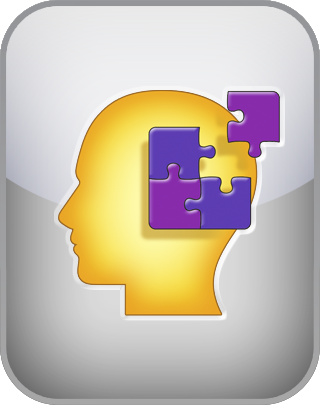Academically reviewed by Dr. Sabina Alispahić, Ph.D., professor of psychology
Autism/Asperger Test
Five-Factor Model, Long Form Version
This autism/Asperger test evaluates autistic and Asperger traits and delivers a personal result reflecting overall autism/Asperger scores across five different domains.
Inspired by the Ritvo Autism Asperger’s Diagnostic Scale-Revised (RAADS-R), variants of this test are often used to identify higher functioning adults with Asperger’s or autism who are otherwise excluded from diagnosis due to subclinical presentation of their traits.
Want to know your autistic traits? For each of the following questions, indicate how well it describes you below.
Question 1 of 80
It can be very hard to read someone’s face, hand, and body movements when they are talking.
| Disagree | Agree |
NEXT
The IDRlabs Autism Test is inspired by the Ritvo Autism Asperger’s Diagnostic Scale-Revised (RAADS-R) authored by Riva Ariella Ritvo (Ph.D.), Assistant Clinical Professor at Yale School of Medicine. IDRlabs is not affiliated with either the author or the Yale School of Medicine or any other institution.
The test provides feedback such as the following:
Peculiar Language: Relates to a tendency toward literal language interpretation and difficulty with metaphor comprehension, e.g., idioms, irony, and sarcasm. Moreover, it focuses on an individual’s inability to interpret information on a semantic level, using semantic integration to interrelate information from different sources to comprehend non-concrete information and abstractions. It also measures Echolalia, i.e., a pattern of repeated behaviors such as repeating noises and phrases picked up from movies, television, etc.
Distanced Sociality: Measures how individuals perceive themselves in social contexts — how they manage situations and associated stimuli, social cues, behavioral signals, social dynamics, etc. It focuses on the ability to understand the mental state of oneself or others in relation to socialization, feelings of sticking out in a group or being different or an outsider in comparison to others, as well as being perceived as rude or “too straightforward.” This element also investigates a possible lack of social boundaries or social skills, difficulty recognizing social consensus or “rules” associated with turn-taking in conversation, difficulty recognizing romantic interest or flirtatious behavior, and so on.
Sensory-Motor Peculiarities: Denotes sensitivity toward certain stimuli (touch, sound, etc.), motor control issues, and voice volume challenges. It also includes the tendency to talk very loudly or not loudly enough — fluctuating between monotonous speech or the abnormal use of one’s voice, as well as the tendency to be clumsy or uncoordinated when exposed to external stimulation.
Restricted Interests: Measures detail orientation, the tendency to maintain focus for long periods, and how a person structures their engagement and engages in routines. A high score indicates special interests or obsessions, distress sensitivity to disruption in patterns and routines, and detail preference in terms of understanding detail and ability to conceive a larger picture. A lower score indicates the absence of these tendencies.
Neuroatypical: The neurologically atypical category reflects non-normative behaviors that indicate a divergent neurological makeup. A low score thus indicates neurotypical personality facets and features, while a higher score indicates neurological divergence.
The IDRlabs Autism Test is inspired by the widely used Ritvo Autism Asperger’s Diagnostic Scale-Revised (RAADS-R), which was developed by Dr. Riva Ariella Ritvo, Assistant Clinical Professor at the Child Study Center, Yale School of Medicine. The RAADS-R test was developed as an instrument to help identify adults with subclinical autism. While the IDRlabs Autism Test is based on the well-known RAADS-R test, it cannot be used to provide clinical assessments or accurate evaluation of your personality. Clinical assessments should always be done in coordination with a mental health professional. For more information about any of our online tests and quizzes, please consult our Terms of Service.
References
- Ritvo, R. A., Ritvo, E. R., Guthrie, D., Yuwiler, A., Ritvo, M. J., & Weisbender, L. (2008). A Scale to Assist the Diagnosis of Autism and Asperger’s Disorder in Adults (RAADS): A pilot study. Journal of Autism and Developmental Disorders.
- Andersen, Lisa & Naswall, Katharina & Manouilenko, Irina & Nylander, Lena & Edgar, Johan & Ritvo, Riva Ariella & Ritvo, Edward & Bejerot, Susanne. (2011). The Swedish Version of the Ritvo Autism and Asperger Diagnostic Scale: Revised (RAADS-R). A Validation Study of a Rating Scale for Adults. Journal of Autism and Developmental Disorders.

